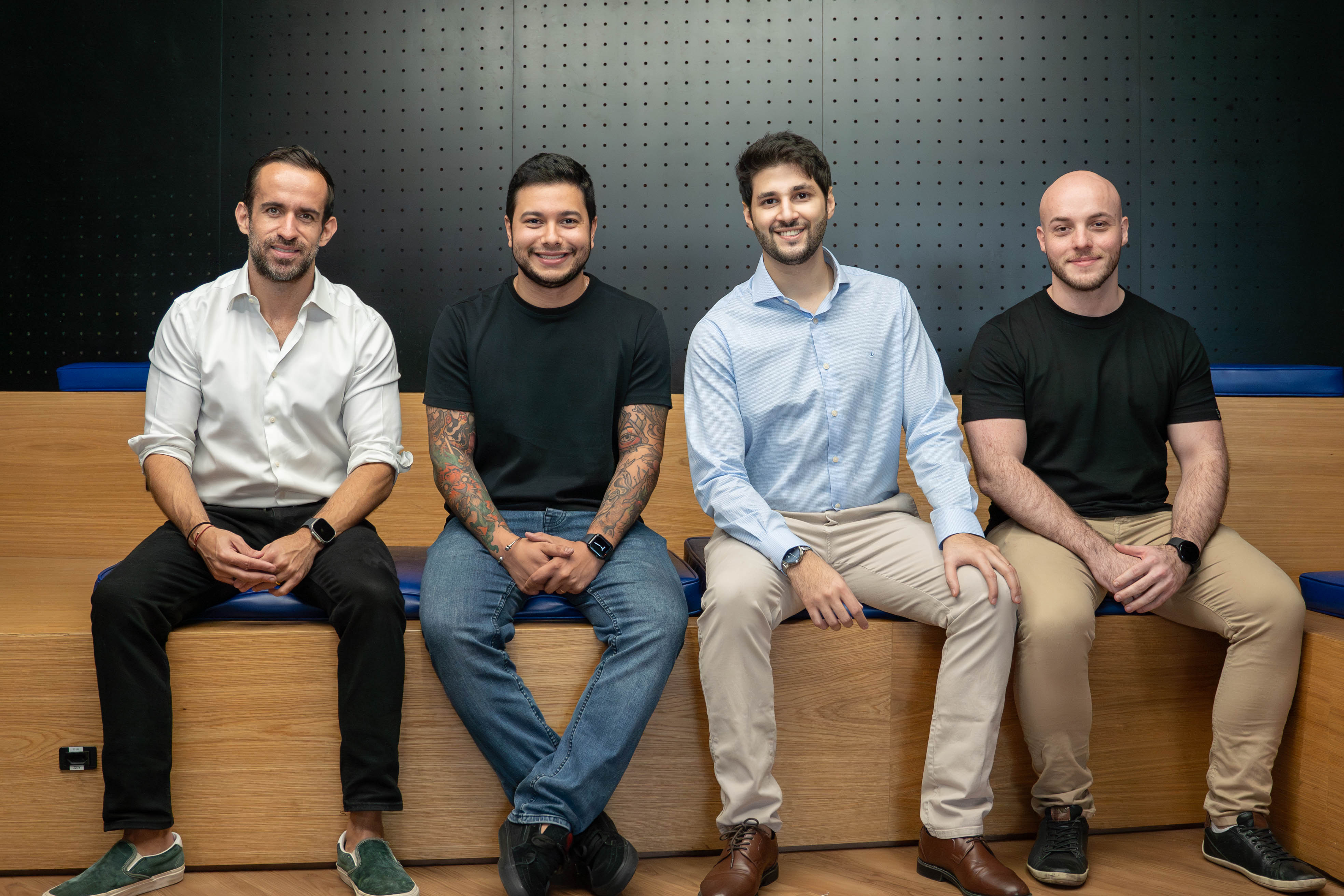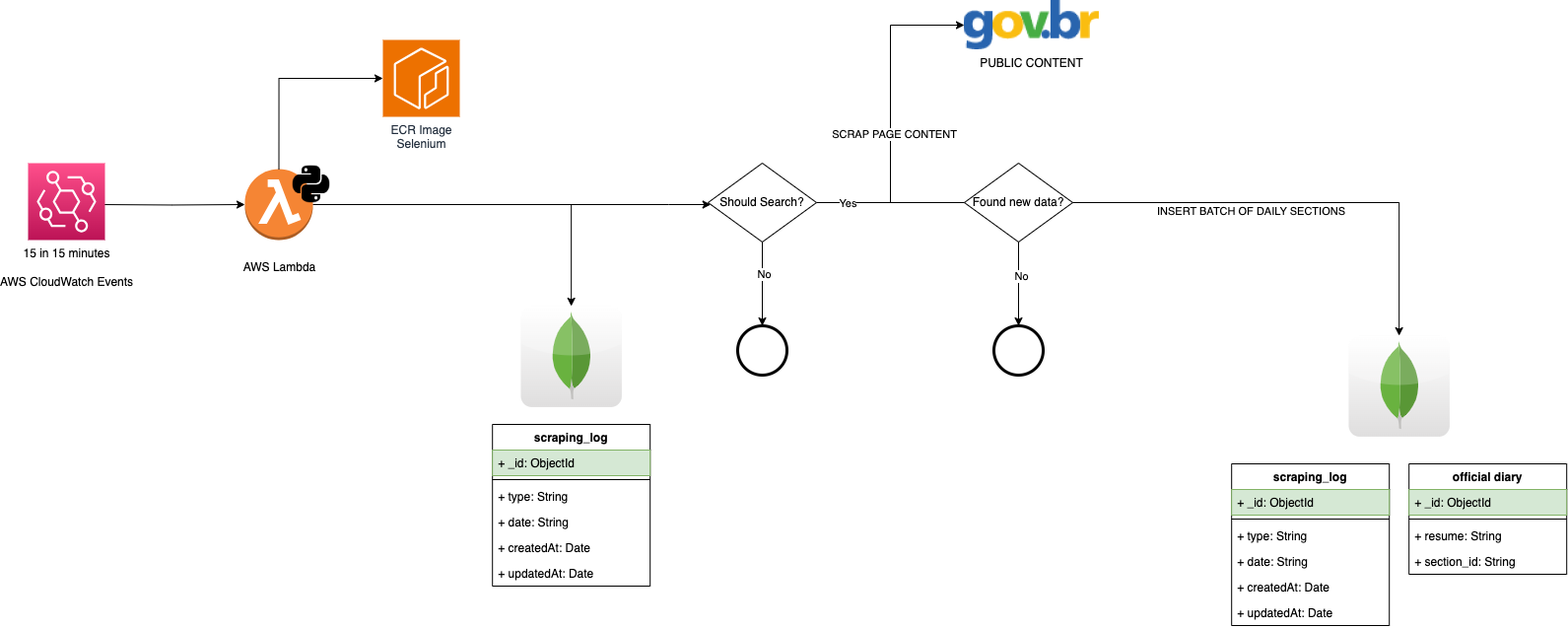
About the company
Based in São Paulo, Brazil, Nomos is a plataform for centralized, practical and organized monitoring of information from executive and legislative branches nationwide (Brazil).

Responsabilities
Co-founded Nomos in partnership with Arko Advice and Traders Club, securing a $5 million investment to build a platform for centralized and practical monitoring of executive and legislative information across Brazil.
Designed and implemented a highly efficient technical infrastructure capable of collecting and processing nationwide data, delivering real-time alerts to users in under 1 minute, significantly outperforming competitors (5–15 minutes).
Directed the end-to-end product development lifecycle, from concept to go-to-market strategy, ensuring a successful launch and aligning the platform with user needs and market demands.

Principal outcome
At Nomos, I had the incredible opportunity to build a platform from the ground up, turning a vision into a fully realized product that launched successfully in the market. Starting with a blank slate, I led the technical and strategic efforts to develop Nomos, driving everything from the initial concept and architecture to its market entry. We focused on creating a platform that was both robust and scalable, investing heavily in user experience, security, and performance.
Our team’s dedication to quality and innovation paid off—we outperformed all our competitors by listening closely to market needs and constantly iterating on feedback. Nomos brought a unique combination of functionality and user-centered design that set it apart, attracting a growing base of loyal users and industry recognition. Our competitors struggled to keep pace, as we had already built features and infrastructure that addressed real pain points, providing a seamless, intuitive, and highly efficient platform that became a preferred solution in our market.
Projects & Code Contributions
Discover the repositories highlighting the technical solutions and innovations I spearheaded during my time at Nomos.
Docker ECR Python Selenium
This Docker image was built upon the ECR Lambda Python Image with the objective of have selenium and its dependencies installed for webscraping purpose. Github
AWS Serverless Webscraping
This is a basic project to collect data from a web page and save the information in a MongoDB database. Github
System Design Overview: Nomos Architecture for Data Ingestion, Search, and Monitoring
This section outlines a basic design of the Nomos architecture, detailing how it manages the ingestion, storage, search, and monitoring of data.
The system begins by collecting data from public sources, such as the Official Diary of the Union. The source provides data in a paginated format, with each entry containing a title and a brief summary representing a section of the diary.

When new data is identified, the partial data is inserted into the official_diary collection and the scraping_log is updated to not run the process again.
A MongoDB Trigger is configured to initiate the next step in the data processing pipeline, collecting the full content of the new sections found.

All entries in the official_diary collection are automatically replicated to MongoDB Atlas Search, a robust search engine optimized for indexed queries, similar to Elasticsearch.

The good part of use the MongoDB Atlas Search is that the data is automatic replicated by the Atlas Cloud, you dont need to worry about the data replication between the store database and the search database.
The system supports user-defined saved searches, which are continuously validated against newly ingested data.

When we have a new data inserted in the matches collection and the alert to the user is configured to be realtime a trigger is invoked to send the alert to the user.
We also have two secondary flows responsible to send the grouped matches per day and per week.

The Nomos architecture is designed to streamline the entire lifecycle of data management, from ingestion to user notification. By leveraging MongoDB's robust capabilities, it minimizes manual maintenance while ensuring real-time responsiveness and scalability for search and monitoring needs.
